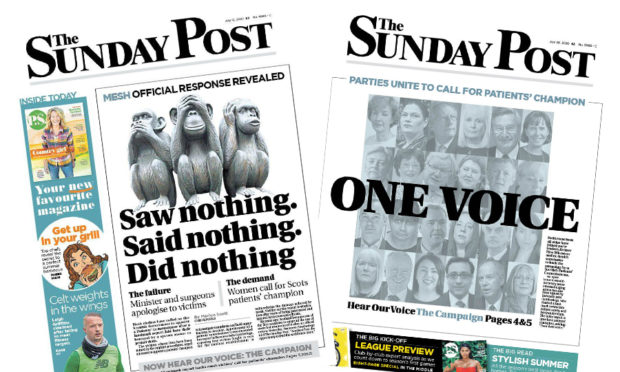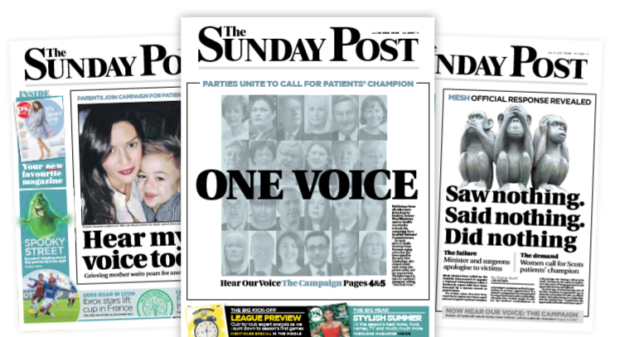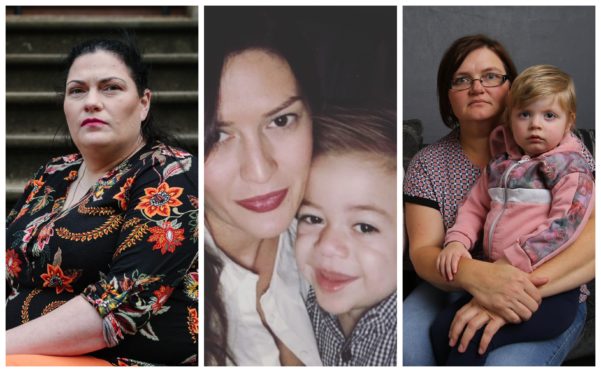
The Sunday Post’s campaign for the appointment of a Scottish patients’ champion has been shortlisted for a prestigious UK journalism award.
The Hear Our Voice campaign calling for a Patients’ Commissioner has been shortlisted in the Campaign of the Year category of the British Journalism Awards.
Led by chief reporter Marion Scott, who was the first journalist in Britain to expose the scale of the unfolding mesh implant scandal, we launched the campaign in July after Baroness Julia Cumberlege published a landmark and damning review of how women left crippled by mesh procedures had been failed by the system and their complaints dismissed by health professionals.
A vitally important cause, well-researched, powerfully written and stubbornly persistent
– The Cumberlege review team on The Sunday Post campaign
Raising the voice of other patients, including parents of children caught up in the contamination scandal at one of Scotland’s flagship hospitals, the Queen Elizabeth University Hospital, Glasgow, a series of reports urged the Scottish Government to appoint an independent patients’ champion to investigate complaints, hold organisations to account and ensure patients’ voices are heard.
Our campaign
In an open letter, the campaign was backed by politicians from all parties, former first ministers, health secretaries, medical professionals and patients. In August, Health Secretary Jeane Freeman confirmed the Scottish Government was committed to appointing a patients’ safety commissioner. Last week, Simon Whale, a member of the Cumberlege review team, which hopes the rest of the UK will now follow Scotland in appointing a patients’ champion, commended The Sunday Post’s reporting.
He said: “The Hear Our Voice campaign is a brilliant example of journalism at its best. A vitally important cause, well-researched, powerfully written and stubbornly persistent. Patients and families who have suffered avoidable harm need proper recognition and support and we must make sure the healthcare system acts to prevent a repeat of the terrible tragedies that have affected so many.
“The Sunday Post has been pivotal in shining a light on this and securing a commitment to much-needed action in Scotland.”
This year’s British Journalism Awards, staged by UK Press Gazette, attracted a record number of entries. Eighty judges spent three weeks reading more than 800 entries. The winners will be announced at a virtual event next month.
Chairman of judges and Press Gazette editor-in-chief Dominic Ponsford said: “The 2020 British Journalism Awards will be a special event, hopefully closing the chapter on a tough period – but also celebrating the best of the amazing journalism which has come out of it.
“As ever, the judging process will be utterly impartial and independent and will look for journalism which shows skill and rigour, is revelatory and which makes a difference for the better in society.”

Enjoy the convenience of having The Sunday Post delivered as a digital ePaper straight to your smartphone, tablet or computer.
Subscribe for only £5.49 a month and enjoy all the benefits of the printed paper as a digital replica.
Subscribe


